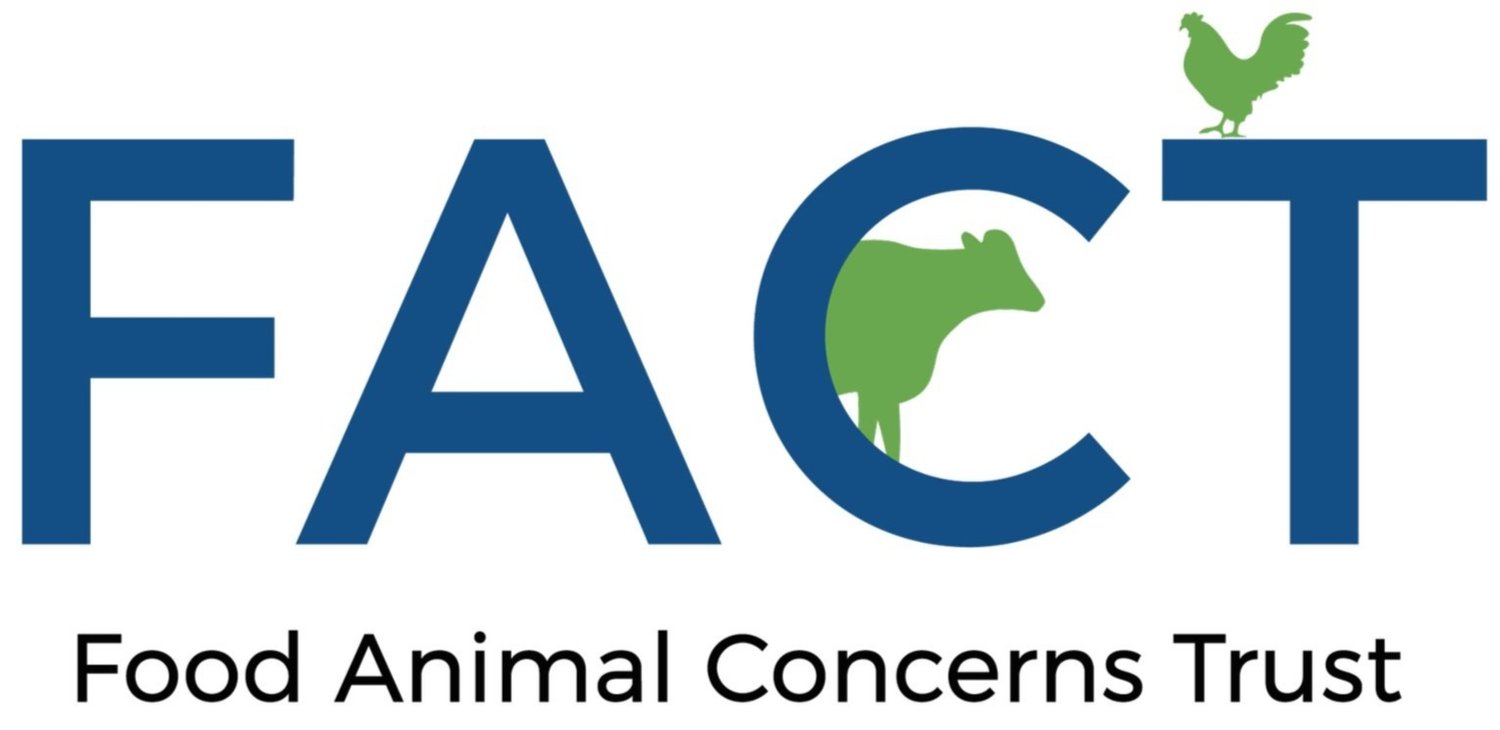What is a Heritage, Pasture-Raised, Organic Bird anyway?
By Samantha Gasson, FACT’s Humane Farming Associate
When I’m not working on the mentorship program, handing out scholarships, helping Larissa with our webinars or writing short courses for farmers, I’m working on our family’s livestock farm in North Carolina. We are particularly busy this time of year because of a decision we made in 2016 to add the humble Meleagris gallopavo domesticus (AKA the domestic turkey) to our livestock operation.
Each year I get dozens of calls from potential customers that starts out with “ I’m sure this is a dumb question but….” My response is always; there are no dumb questions, something I really believe. Especially when it comes to choosing a bird for your table, a bird that is likely to come with a price tag of over $100.
There are so many options to choose from, pasture-raised, organic, non-GMO, heritage…it’s a big mess which can be difficult to untangle. The key is to choose a bird that aligns with your needs and your pocketbook.
Here is a little cheat sheet of poultry husbandry terms to help you ask the right questions of your turkey producer.
Pasture vs Confinement raised:
Pasture Raised:
Pasture raised birds spend their whole lives out on pasture. This can be in movable huts (which can be short and crowded or large and spacious) or with plenty of space to run in poultry netting.
Not necessarily fed an organic or non-GMO feed.
Not always a heritage breed but frequently are with smaller producers.
Pasture-raised birds cost a lot more to raise than a bird raised in confinement.
Tend to be more flavorful.
If animal welfare is of upmost importance to you then you’ll want a pasture-raised bird.
Confinement Raised:
What you find in the grocery store.
Almost all the confinement raised turkeys are the White Broad Breasted
Birds raised in confinement have a whole host of health and environmental issues (you can dive deeper HERE).
Can be organic or non-GMO
Have less flavor than a pasture raised bird.
Sometimes labeled “Cage Free” but they are never on pasture.
If price is of upmost importance to you then you’ll probably want a confinement-raised bird.
Organic/Non-GMO vs not Organic/non-GMO:
Certified organic or non-GMO producers have to go through a certification process.
Organic and non-GMO birds aren’t necessarily pasture-raised, most certified organic or non-GMO birds are not.
Many pasture-raised turkey producers feed an organic or non-GMO feed but are not certified.
If what your bird is fed is of upmost importance to you then you’ll probably want an organic or non-GMO bird.
Heritage vs Commercial breeds:
(if you want a deeper dive check out this FACT webinar on heritage poultry breeds):
Heritage breeds:
The breeds your grand and great grandparents raised. The Livestock Conservancy has information on each of the breeds they recognize. This list includes:
Standard Bronze, Black Spanish, Buff, Bourbon Red, Holland White, Narraganset, Slate, Royal Palm and Midget White.
Heritage breeds tend to be smaller and take longer to grow to processing size (although my Black Spanish birds grew really well this year).
Heritage birds breed naturally (the male commercial breeds are too heavy to breed the females who are then are artificially inseminated).
Heritage birds have the reputation of being tastier (non-heritage producers would vehemently disagree:)
All heritage breeds were developed from a wild turkey.
Not all heritage breeds are raised on pasture.
The logistics of keeping breeding groups separate makes it difficult to pasture raise, especially if they come from a breeder.
If natural breeding is of upmost importance to you then you’ll probably want a heritage bird.
Commercial breeds:
There are two main commercial breeds.
The White Broad Breasted and the Bronze Broad Breasted
The Bronze Broad Breasted was developed by selectively breeding the Bronze turkey for a larger breast.
The White Broad Breasted was developed by crossing the Holland White with the Bronze Broad Breasted.
Commercial breeds don’t have to be raised in confinement; most pasture raised birds are the White Broad Breasted.
Almost all of the birds found in the grocery store (even in Whole Foods).
If large bird size is of upmost importance to you then you’ll probably want a commercial breed of bird.
Think about which of the above practices or traits are important to you then list them by importance. You are unlikely to find a pasture raised, organic, heritage bird that weighs around 20lbs but drop the heritage requirement and you’ll have a good chance of getting the bird you want.
If you’re still confused about what’s out there, give your producer a call. We might be a little frazzled this time of year but we always like talking about our birds even if you start with “ I’m sure this is a dumb question but….”.
Photo Credit: Bull City Farm


